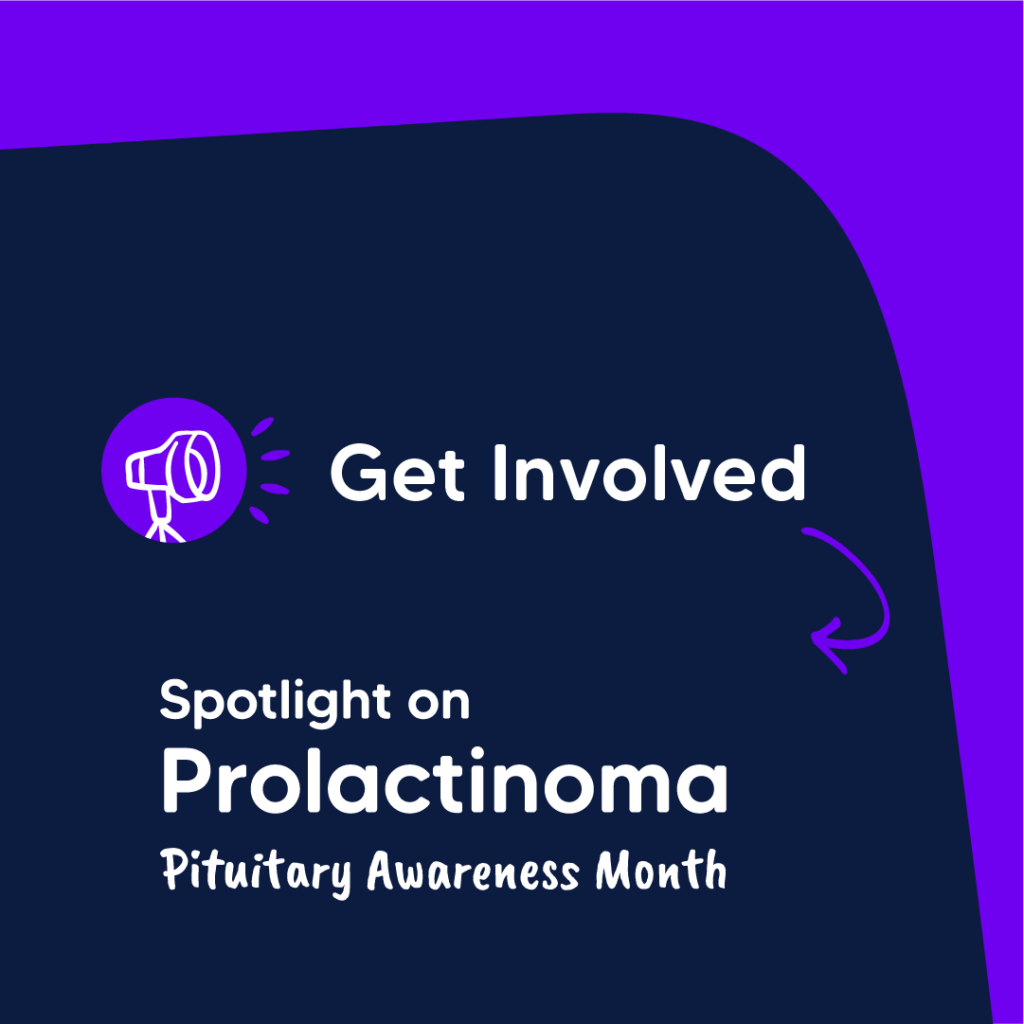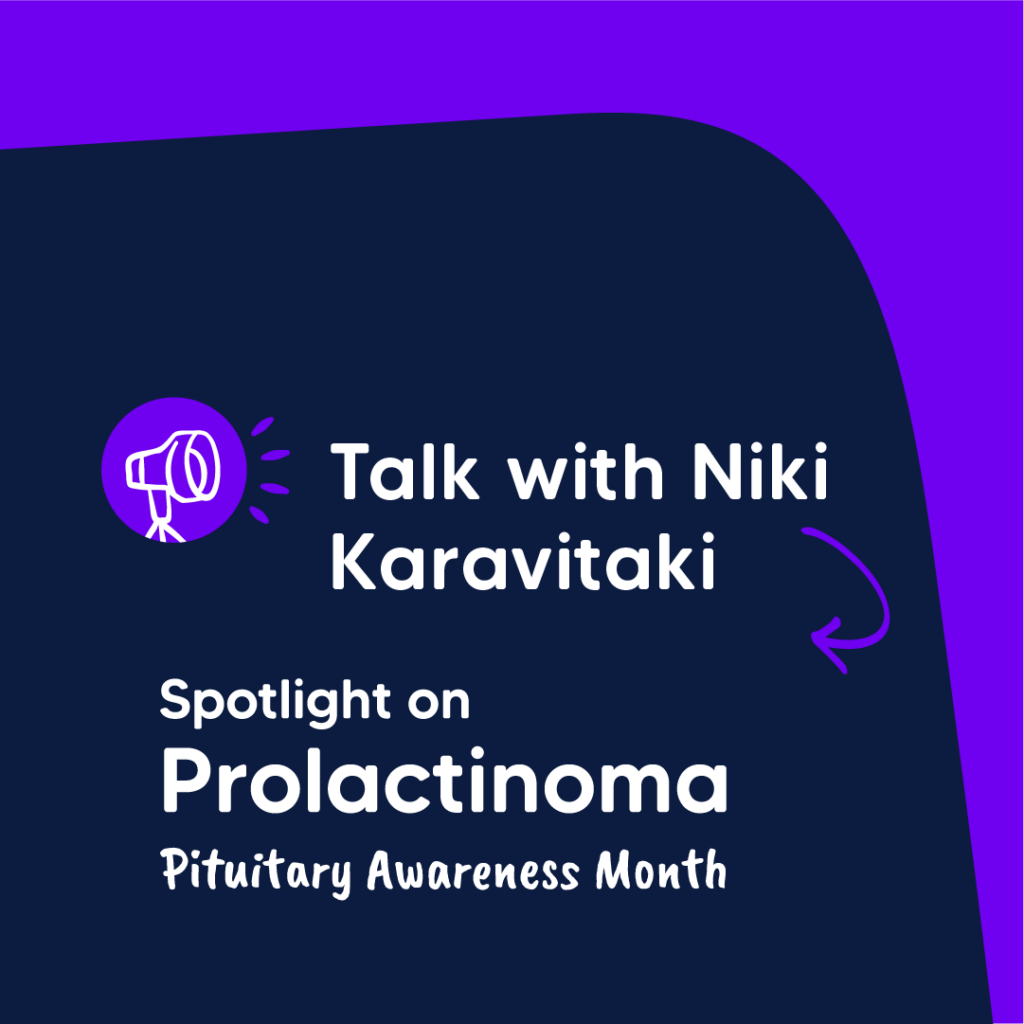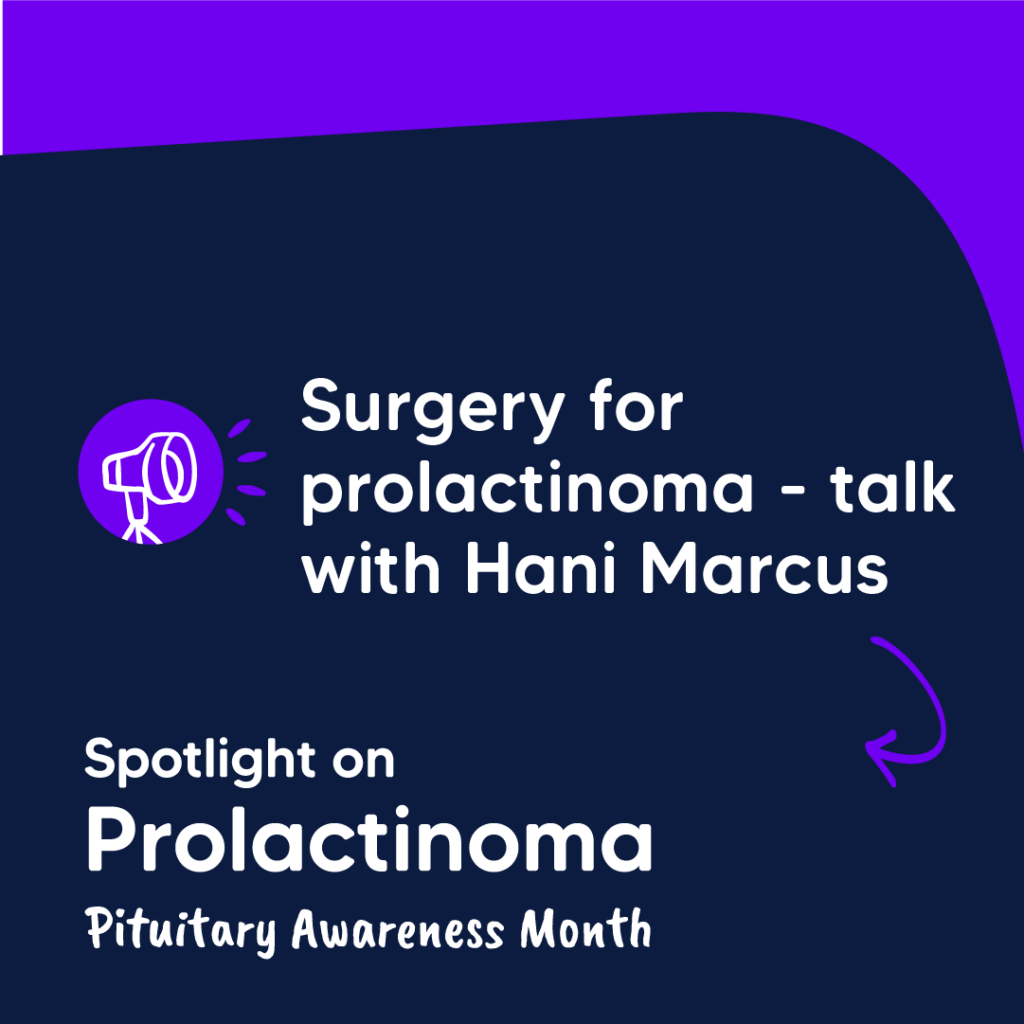Regardless of sex, prolactin is a hormone that is present in every body and plays a significant role in producing milk. A prolactinoma is a prolactin-producing tumour on the pituitary gland. This is the most common pituitary condition, and can have life changing impacts on fertility and wellbeing.
Throughout October in 2023, we shined a spotlight on prolactinoma by increasing awareness about the impact of prolactin and prolactinoma, sharing up-to-date information and connect people living with high prolactin levels with experts and one another.
We hosted seven online events for people with prolactinoma and their support networks to learn more about prolactin and prolactinoma. Additionally, we hosted a Prolactinoma Support Group Meeting to exchange experiences and a Q&A session specifically for men with prolactinoma, as their journey often looks different to women. In total, over 130 people attended these events, asked questions and shared their personal stories.
Around 90% of attendees thought the events were good or excellent and increased their knowledge of the subject. We are pleased to have held a session specifically for men with a prolactinoma, as often their experience can be different to others.
On social media we shared information and stories about people living with prolactinoma and these were seen over 88,000 times. The website pages for prolactinoma were also viewed 42% more than a normal month.
If you would like to watch the talks for Pituitary Awareness Month, please visit our YouTube channel.
About Prolactinoma
A prolactinoma is the name given to a prolactin-producing tumour on the pituitary gland. This is a benign tumour, and not a brain tumour or cancer. A prolactinoma causes raised prolactin. This hormone stimulates milk production after childbirth, but is also present in men.
Symptoms vary depending on a person’s sex and can include:
- Loss of periods
- Reduced interest in sex
- Vaginal dryness
- Infertility
- Excess breast milk production
- Difficulty getting an erection
- Headaches
- Visual problems
Once diagnosed through blood tests and scans, a prolactinoma can be treated usually through medication. Surgery can be a treatment method to remove the prolactinoma, although this is less common.
During Pituitary Awareness Month, we shared materials and information about the symptoms, diagnosis and treatments of prolactinoma throughout.
Together, we can make a difference by increasing understanding and support for those affected by prolactin-related conditions within the pituitary community.















